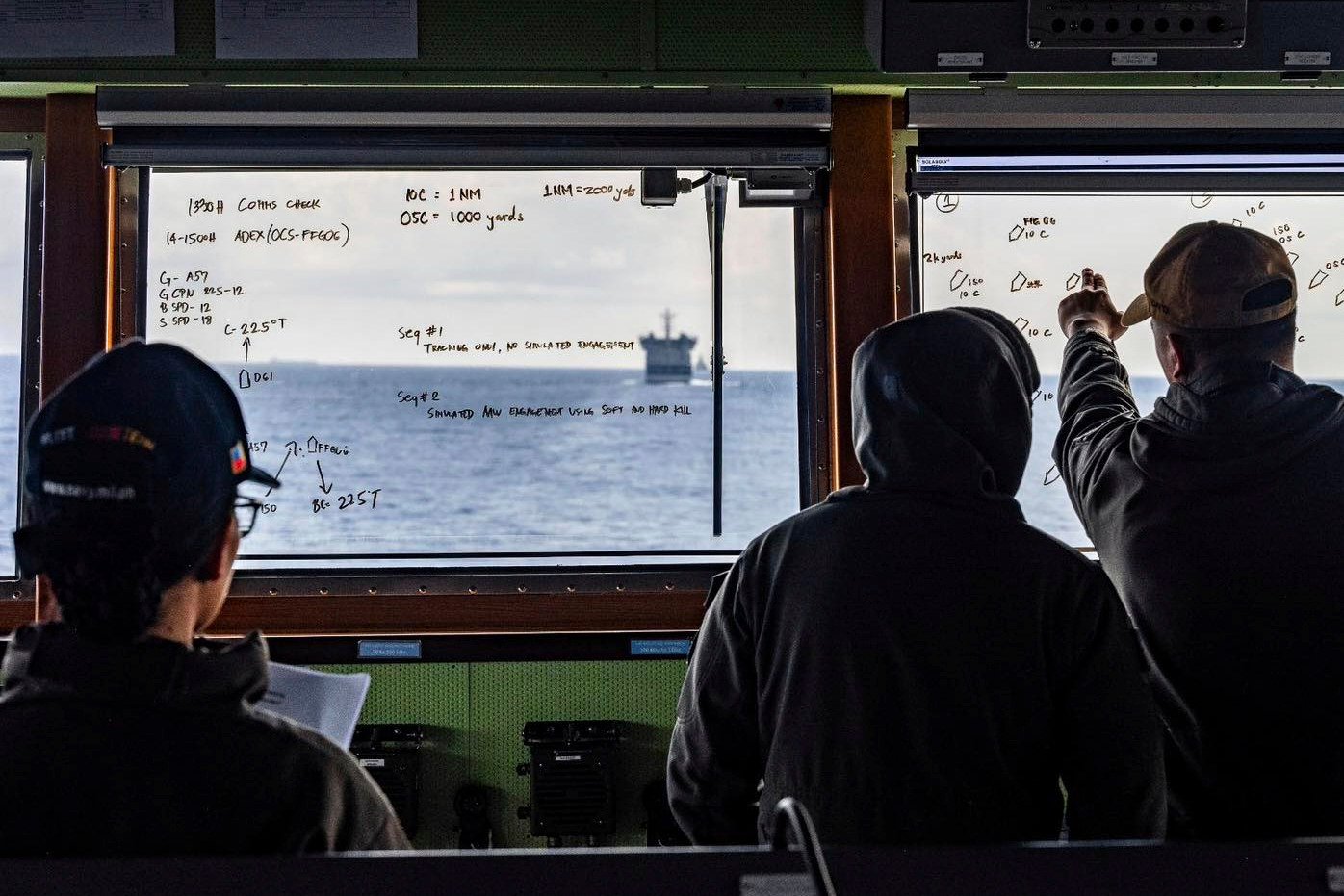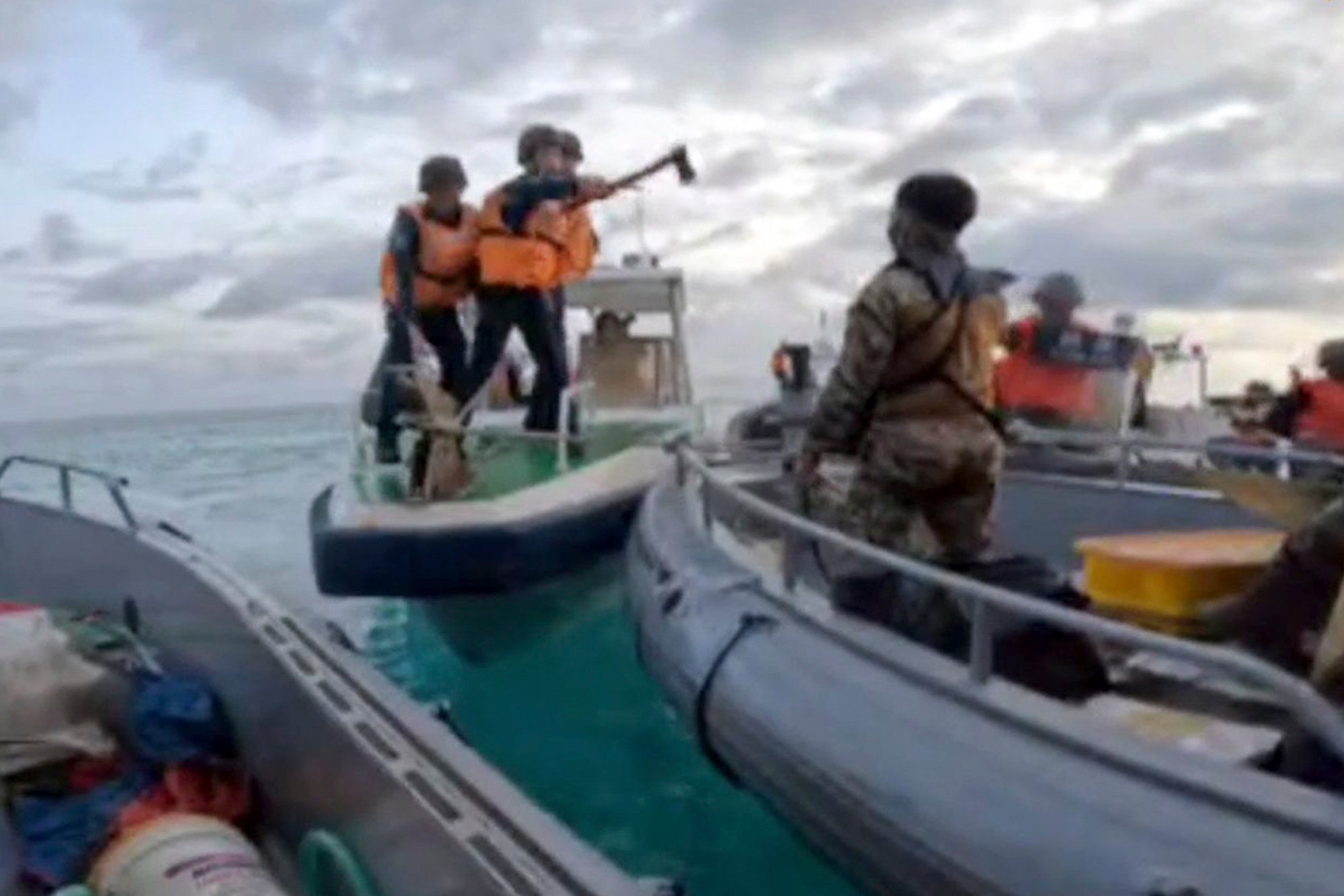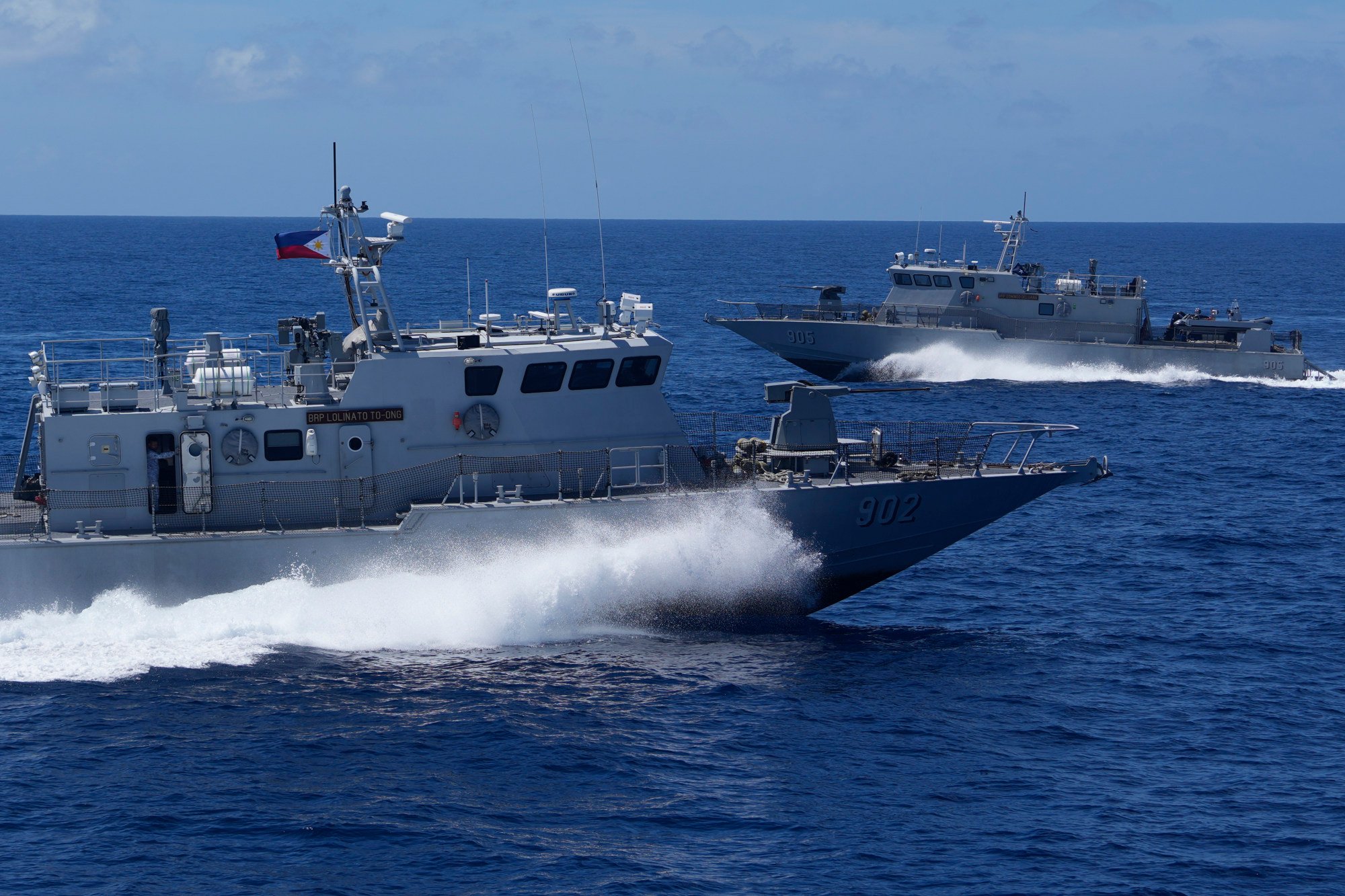Philippines rejects Chinese ‘fake news’ broadcast of South China Sea clash
Manila claims the video of a maritime confrontation broadcast by state media was old, recycled footage from a past encounter

A Chinese state media broadcast, claiming to show its coastguard towing a Philippine vessel in the South China Sea, has triggered a fresh diplomatic rift between Beijing and Manila, with Philippine authorities dismissing the footage as “fake news” and accusing China of recycling video from past confrontations to manipulate public opinion.
The controversy has renewed scrutiny of Beijing’s information strategy in one of the world’s most contested maritime regions. Analysts caution that while such tactics may fail to sway Western observers, they could erode trust in the Philippines’ narrative by muddying the waters – complicating efforts to marshal domestic and global support.
The footage in question – a segment from a People’s Liberation Army anniversary documentary aired by state broadcaster CCTV on Friday – appears to show a tense six-minute stand-off at Second Thomas Shoal, known in the Philippines as Ayungin Shoal and in China as Renai Jiao. In the video, a Chinese coastguard vessel is seen towing a smaller craft as shouts are heard in the background.
The video is undated and was published without context, officials in Manila contend. Philippine authorities were quick to repudiate the video’s claims, insisting that no such incident had taken place in recent months. Instead, they suggested that the footage likely depicted the clash that occurred on June 17 last year during a resupply mission to the BRP Sierra Madre, a Philippine outpost at Second Thomas Shoal.
“Obviously this is another form of [dis]information or fake news to weaken our country’s stance in the West Philippine Sea,” said Commodore Jay Tarriela, spokesman for the Philippine coastguard, using Manila’s name for the section of the South China Sea it claims as its own.
The Armed Forces of the Philippines echoed this warning in a statement, labelling the release of undated videos as “deceptive tactics” designed to “manipulate public perception, distort the truth, and weaken our shared resolve in asserting the nation’s sovereign rights”.
Beijing asserts sovereignty over most of the South China Sea, a claim that was rejected by an international arbitration ruling in favour of the Philippines in 2016. China has repeatedly dismissed that ruling as illegitimate.

‘Disinformation infrastructure’
Observers say this is the first time Chinese state media has broadcast footage of its coastguard towing a Philippine vessel, signalling an escalation in the battle of narratives over the disputed waters.
Vincent Kyle Parada, a former defence analyst for the Philippine Navy, said the video was emblematic of China’s long-standing effort to shape global perceptions surrounding its maritime claims.
“Beijing’s disinformation infrastructure is robust – it’s enshrined in the country’s political and military philosophy, and it has no qualms about leveraging it to its fullest potential,” Parada said.
“Even if overseas audiences do not necessarily buy their messaging, it still saturates the information environment enough to drown out opposing narratives while propagating its own to potential sympathisers.”
The goal here really is to sow confusion … You saturate the information environment until people can’t figure out what’s realVincent Kyle Parada, ex-naval defence analyst
Parada pointed out that the Philippines had, in recent years, adopted a more forceful posture, launching an “assertive transparency” initiative aimed at exposing grey-zone activities in the South China Sea and drawing international attention to Chinese actions.
“It’s Sun Tzu-ian at its core: to win without fighting,” he said. “The goal here really is to sow confusion, especially at a time when the Philippines is ramping up efforts against Chinese disinformation.”
Unhandled type: inline-plus-widget {“type”:”inline-plus-widget”}
“You saturate the information environment until people can’t figure out what’s real and what isn’t; what’s happened before and what’s actually happening now,” Parada added.
China’s approach risks undermining its credibility on the world stage, according to Chester Cabalza, president of the Manila-based International Development and Security Cooperation think tank.
“If they keep on doing this, the world will believe that China doesn’t truly own the South China Sea,” he said.

Cabalza described China’s efforts as part of a broader disinformation campaign intended to project an illusion of control over the contested waters. “Their remedy is the use of disinformation and distortion of news to make believe that they are in control,” he said, adding that such tactics had so far failed to win broad international acceptance.
Still, he cautioned against Manila underestimating the reach of Beijing’s messaging, noting that even disputed claims could “confuse global perceptions” and weaken the position of smaller claimant states seeking international backing.
Parada argued that Manila’s response should go beyond fact-checking, calling for comprehensive reforms to strengthen information security and counter-influence efforts.
“That’s everything from strengthening anti-espionage laws and clamping down on fake news, even at the domestic level, to developing robust cybersecurity capabilities, both in terms of technological capacity and human capital,” he said.
“More importantly, it [Manila] needs to figure out a calculated response to Chinese provocations in the disputed territories – one that not only abides by international law but also bares the Philippines’ teeth to back up its bark.”

Last year’s creation of the Philippines’ National Maritime Council was a step in the right direction, Parada said. The council centralises policy and coordination across agencies responsible for maritime security.
“We’re seeing a much more cohesive narrative these days,” he said. “Not just in terms of the Philippines as a responsible member of the international community exercising its right to self-defence, but also by emphasising that – beyond ships and blips on a map – China’s illegal activities in the West Philippine Sea have a personal, distinctly human cost for many Filipinos.”
To sustain momentum, Cabalza said Philippine agencies must be steadfast and credible in communicating the nation’s position.
“We have shown the world that honest people do not tell lies,” he said. “Our legal approaches and steadfast spirit are admirable to the world. The military and our diplomatic corps will just keep on repeating the same story to remain consistent and credible. These are basic principles in stating grand narratives.”